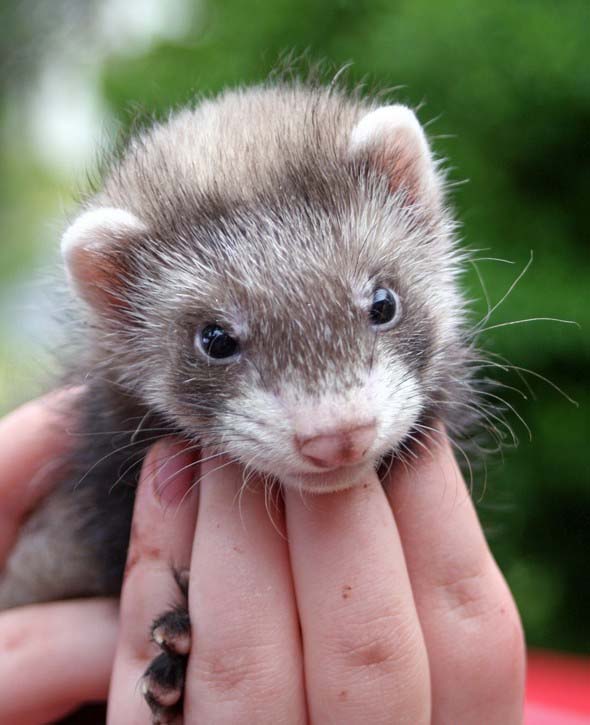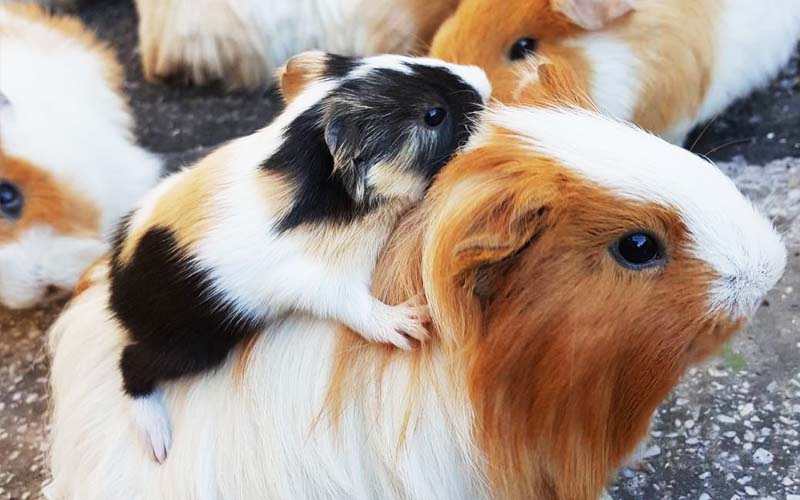Pocket Pets
Cleanliness is the best guarantee to keep your pet in good health. Clean the feed dish daily, the water bottle at each refill. Change bedding every 2-3 days and clean and disinfect the cage and accessories once a week.

Ferret Care
Vaccinations
Ferrets are vaccinated for distemper at 8 weeks, 12 weeks and 16 weeks of age. A booster is due then every 12 months.
Parasites
Ferrets can pick up fleas and ear mites from either cats, dogs or other ferrets. Both of these parasites can be treated with Revolution – which is sold over the counter at Spearwood Veterinary Hospital.
Worms
Ferrets can be affected by heartworms and the best prevention is Revolution. Intestinal worms rarely cause problems in ferrets therefore routine worming is not required.
Diet
Ferrets are strict carnivores. Hills Science Diet cat/dog foods are suitable for ferrets.
Desexing
Mature ferret females will remain in heat until mated. This can lead to Pyometra, a condition of the uterus, which may lead to death. Therefore, unless planning to breed your ferrets, desexing of both males and females is recommended.
Additional Health Care
Ferrets have continuously growing nails that need to be trimmed regularly.
Guinea Pig Care
Vaccinations
Guinea Pigs do not require any vaccinations.
Parasites
Lice/mites are quite common in guinea pigs. They may be picked up from new bedding (eg. hay, straw) or other guinea pigs. Some mites are visible to the naked eye and cause itching and scabs. Guinea pigs do not generally attract fleas from dogs or cats.
Worming
Heartworm and intestinal worms are not generally a problem for guinea pigs, therefore no routine worming is required.
Diet
Guinea pigs are neophobic. This means that they adopt a strong preference for a food type in the first few days of life. So it is a good idea to feed a range of food types from an early age such as fresh fruit and veggies, good quality hay and pellets.
Desexing
If you are not planning to breed from your pet, desexing is recommended. It ensures a calm temperament and reduces the likelihood of some serious diseases. Guinea pigs may be desexed at 5-6mths of age. It should be remembered that a female guinea pig shouldn’t have her first litter after 6months of age, as pelvic bones become fused and can cause problems with labour.
Additional Health Care
Guinea pigs have teeth that continually grow and overgrown incisors (front teeth) and molars (cheek teeth) can occur. We often see guinea pigs with overgrown teeth due to poor diet or hereditary factors. Guinea pigs have continuously growing nails that need to be trimmed regularly.



Rat & Mice Care
Vaccinations
Rats and Mice do not require any vaccinations.
Parasites
Lice/mites may be picked up from new bedding (eg. hay, straw) or other rats / mice. Some mites are visible to the naked eye and cause itching and scabs.
Worming
Heartworm and intestinal worms are not generally a problem for rats or mice, therefore no routine worming is required.
Diet
Food needs to be kept available at all times. Pellets are the best basic main diet, you can complement their diet with small amounts of salad greens, fresh fruits and vegetables. Be sure to clean out any uneaten fresh foods the next day. Be sparing with oily seeds, nuts, and grain mixes.
Toys
Rats: Boxes, ladders, shelves, cardboard/PVC tubes, wooden bird toys, hammocks, wheels etc Mice: Cardboard toilet paper/paper towel tubes, ladders, wheels, houses

 9418 3400
9418 3400
